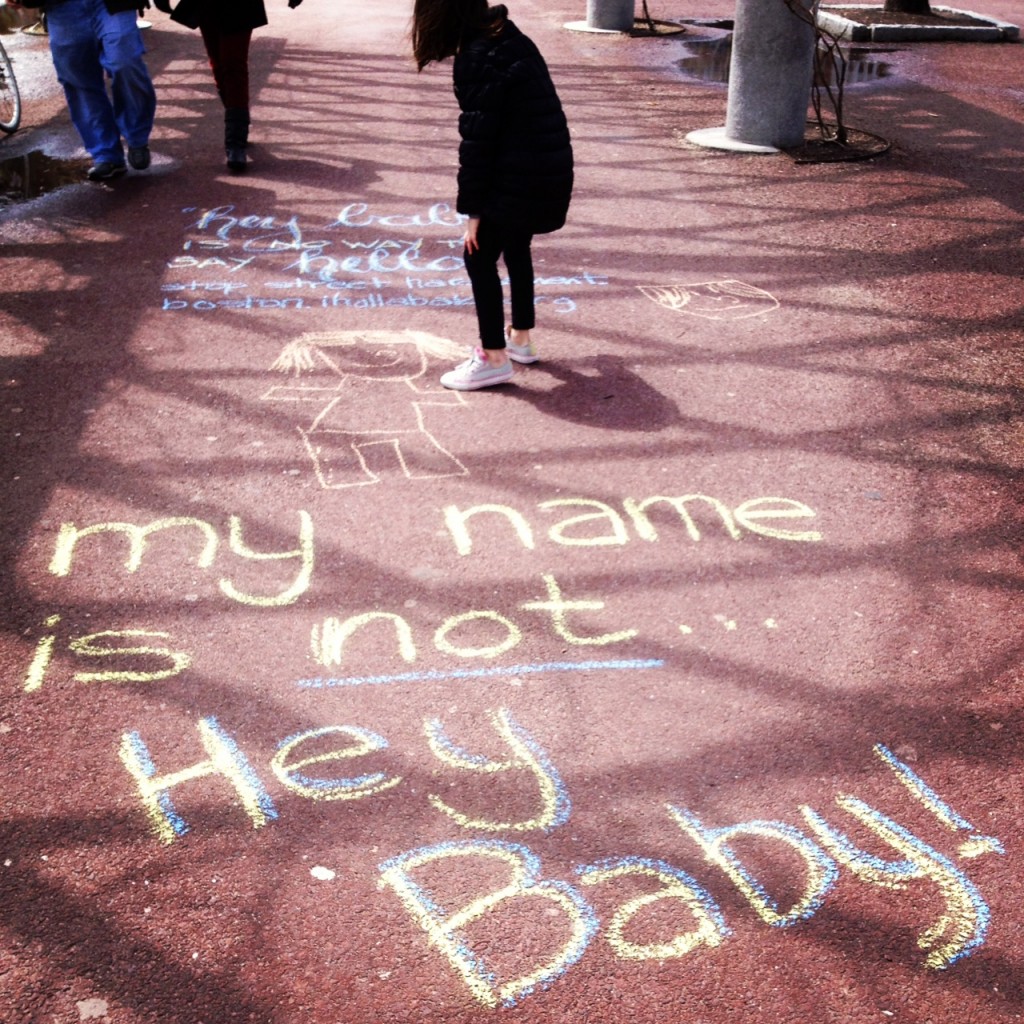Dylan Jane Manderlink, Arkansas, USA, SSH Blog Correspondent

A few nights ago, after being approached by a man on the street in Boston as she walked with a friend, Ellen R. replied, “Not tonight, thank you,” but the the man continued to follow her. She then turned around and said, “Please don’t follow us” and he yelled, “I’m not following you, bitch.”
Ellen told me, “This interaction upset me for so many reasons. Not only did I feel uncomfortable with the man’s initial comment, but when my friend and I tried to defend ourselves in the most polite way possible, the man only got more interested and more angry. I am already scared to walk down the street, so it’s even more frightening to know that even when I try to handle the situation in a calm manner, the man doing the harassing can go from 0 to 10 in a split second.”
Unfortunately Ellen’s street harassment experience is not uncommon. Despite responding with a polite remark, her street harasser met her with petulance, callousness, and an unforeseen temper. In many street harassment awareness and prevention blogs and articles I’ve read, I see the same message being revisited: Street harassment endangers the public space of individuals and disempowers their ability to walk through a public space safely, positively, and healthily. I certainly agree with that because I too, have felt that way when experiencing street harassment. But I would add that street harassment also communicates the message that your private space is no longer yours or never belonged to you.
As you navigate through a public space (a sidewalk, a city, a park, etc.), you also have your own private space within that. The way we personally view the environment we’re in is our private world…our thoughts, our bodies, the space between us and the people we pass on the street in close proximity…those all inform our private world. And when street harassers interfere with that personal, private, and intimate domain of ours, we can feel a different type of violation and discomfort. By understanding the threat we experience on both a private and public level, I believe we can better inform our awareness and advocacy efforts and the dialogues we promote through those modes.
Street harassment tells people that wherever they’re walking, wherever they’re living, whatever space they’re occupying – it’s not theirs. When we are catcalled, groped, eyed, followed, and yelled at the street harasser is claiming that space as theirs and communicating to us that we don’t belong in it. This needs to stop. This is not okay and people are really starting to take notice of how much street harassment is a detriment to our society and to people’s lives. We deserve better. Respecting our public and private space should not be optional, it should be the accepted and expected norm. As activists, the more we make noise and the more we create productive and cooperative pathways to empowerment and awareness, the more we can effect change.
As we approach International Anti-Street Harassment Week (#EndSHWeek) from April 12-18, let’s construct and promote a vigilant and sustainable conversation surrounding street harassment and the private and public spaces that are too often taken advantage of and threatened. I will no longer stand for our space being jeopardized, devalued, and disregarded. In the next couple months leading up to #EndSHWeek, let’s affirm the positive and inspiring efforts of fellow activists, bloggers, feminists, and community members. In doing so, I encourage you to open up meaningful channels of dialogue, spread awareness, and get involved with advocacy that helps make people’s private worlds a better place. Reclaim your space because it was yours to begin with and will always be. No one should be able to take that away from you.
Dylan is a recent graduate of Emerson College and currently teaches 8th, 10th, and 11th grade Digital Communications and Audio/Visual Technology in an Arkansas high school. You can visit her personal blog and follow her on Twitter @DylanManderlink.
